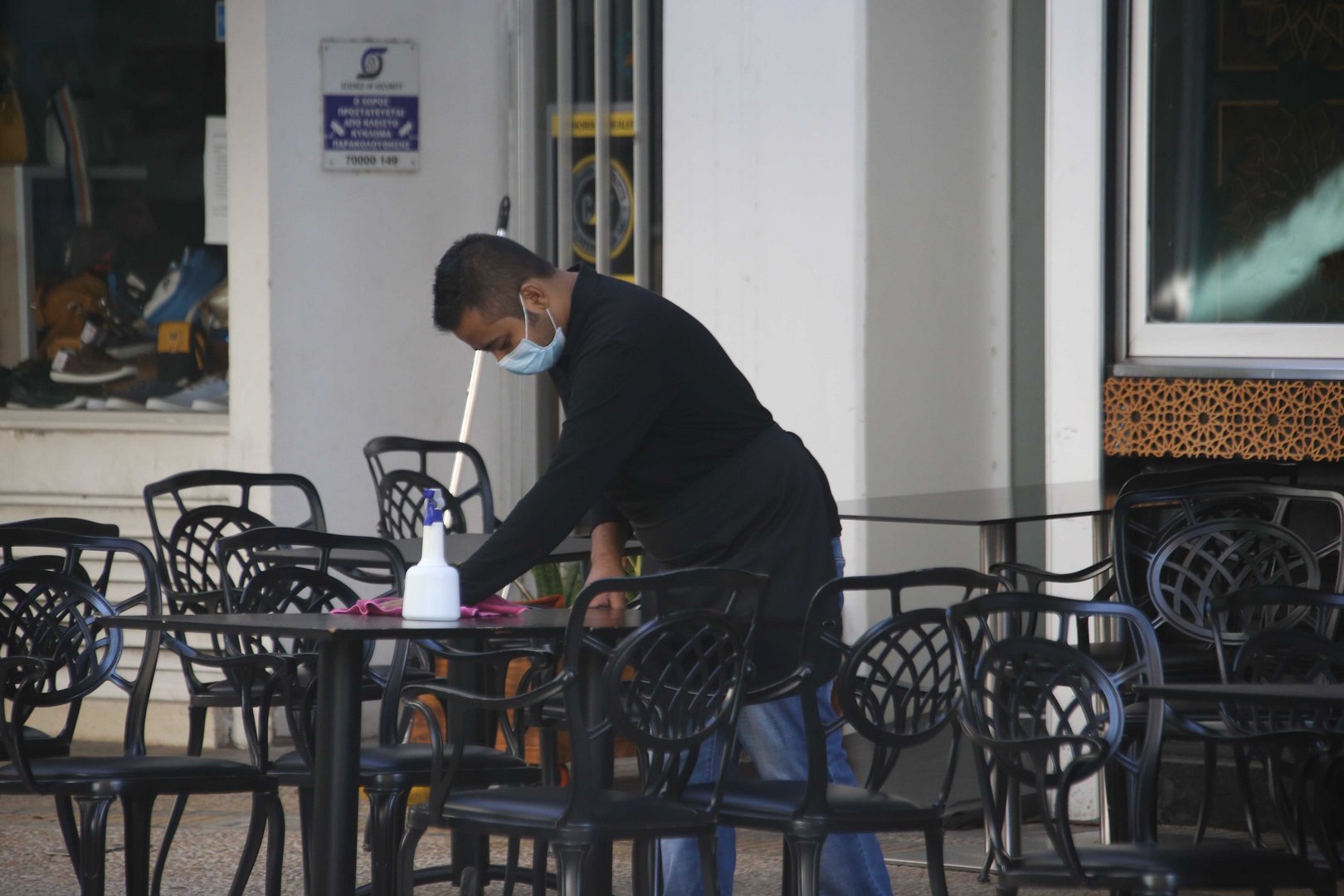The government on Wednesday placed restrictions in hospitality venues and other places where people gathered in large numbers in a bid to stem the spread of Covid infections, which have reached high triple figures in recent days.
Health Minister Michalis Hadjipantelas said the aim of the restrictions was to contain the spread of the virus, as infection clusters had been traced to places where large gatherings took place, and social events.
Large transmission chains were mainly made up of youths with intense social activity, the minister said.
“At the same time, it has been found that over 90 per cent of the Covid cases either had not completed their vaccination or had no history of vaccination, reinforcing concerns regarding the virus’ mutations and the spread inside the community,” the minister said.
“Of equal concern, was the fact that the majority of hospitalised patients were people who have not been vaccinated, resulting in them developing serious symptoms and needing hospital care.”
According to the minister, between Friday and July 31, the maximum permitted number of people indoors will be 250 after presenting a safe-pass, or 350 provided they have received at least one vaccination jab three weeks ago or had contracted the virus in the past six months.
During the same period, the maximum number of people permitted in outdoor venues will be 350 with a safe-pass, or 500 if they have received at least one dose of a vaccine or had been ill with Covid in the past six months.
Youths aged between 12 and 15 and those 16 and above with serious illnesses that preclude them from receiving a vaccine are exempted and can enter such venues by presenting a negative test conducted not more than 72 hours ago.
The measures include restaurants, event halls, nightclubs, live music venues, bars, cinemas, theatres, places of worship, and sports facilities apart from football stadiums.
Businesses that opt to host only people who are fully vaccinated or who had passed the illness in the past six months must ensure they inform the public and post visible signs in their establishment.
The responsibility of implementation lies with the owners or managers of the establishments.
Police and other authorised people are responsible for monitoring the measures.
The health minister repeated the incentives announced earlier this month in a bid to get more people to vaccinate.
Soldiers will be granted five-day leave of absence if they get a jab between July 15 and August 31 while vaccinated members of the public will be eligible for a holiday allowance if they get vaccinated between July 15 and August 31.
Employees in the public and private sector will be entitled to have a day off from work for vaccination, for both doses. The same will apply for parents and guardians accompanying their underage children to their vaccinations.
Between Friday and July 20, entrance to football games will be allowed to people with at least one vaccine dose administered at least three weeks ago, those with negative tests not older than three days, and people who had fallen ill in the past six months.
Football stadiums can only allow in 50 per cent of capacity.
Youths aged between 12 and 15 and those 16 and above with health problems that preclude them from vaccinating may enter by displaying negative tests.
From July 21 onwards, football fixtures can only be attended by fully vaccinated people or those who had the virus in the last six months. The stadiums will operate at 75 per cent capacity. The previous exemptions also apply.
The government will also terminate free testing on August 1, except to youths aged between 12 and 15 and those over 16 with serious illnesses.
Also from August 1, Cypriots and those legally residing in the Republic must follow protocols that apply to all passengers unless they have received the first dose of the vaccine.
Specifically, only those with one dose will be eligible for a PCR at the Republic’s airports upon arrival.
If they have not received at least one dose or have no recovery certificate and are planning to travel with a PCR test from countries in the Orange or Red categories, they must present a negative PCR result not older than three days from their country.
The previous exceptions apply here also.







Click here to change your cookie preferences